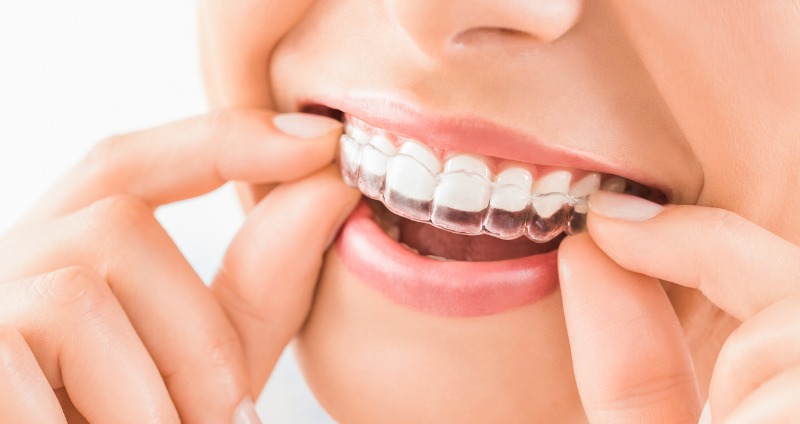When it comes to orthodontic treatment, the aftercare can be just as important as the initial treatment. The last thing you want is for your teeth to move back to their old positions or become crooked in the months or years after your braces have been removed. But how can you ensure it doesn’t happen?
Why Teeth Move Back
Our teeth have good memories! They know which positions they were in before orthodontic treatment and they often want to return to this place. Known as ‘relapse’, it is more likely that teeth will return to their pre-braces positions where there were spaces between the teeth or the teeth were very twisted. Teeth and gums can take many years to settle after braces have been removed.
The celebration of life is that we are constantly changing and tooth movement is no exception. It is universally accepted that minor tooth movements will occur in all individuals and that many medical issues may influence the turnover of bone and subsequent movement of teeth within the bone.
Removable & Fixed Retainers
There are several types of retainers orthodontists use to keep teeth in the correct position once braces have been removed.
Removable Retainers
Clear plastic retainers worn on the top and bottom teeth are often used after braces are removed. The retainers are taken out for eating and teeth cleaning but otherwise, they are left in all day and night to keep teeth in their position. Usually after some months the retainers may be worn only at night to hold the teeth’s positions.
Fixed Retainers
Bottom teeth are particularly prone to become crooked again after braces if a retainer isn’t used. Some patients opt for a fixed wire on the inside of their bottom teeth to keep them in place. The wire stays on the teeth permanently or for several years at least. There are different types of fixed retainers and your orthodontist may recommend one for you.
Caring for Retainers
The usual twice-daily brushing and flossing of your teeth is recommended when wearing fixed or removable retainers.
Removable retainers can be cleaned with a small amount of vinegar and water or a denture cleaning tablet for a short amount of time before replacing them. Toothpaste is not recommended for cleaning retainers as it is abrasive and will scratch the soft plastic.
With fixed retainers it is important that patients clean between the teeth and retainer to ensure cavities don’t occur. Regular dental appointments are also needed for a thorough check and removal of any plaque and tartar build-up.
How Long you will Need a Retainer
Everyone is different. The length of time and type of retainer needed will depend on the problems the orthodontics were used to fix. Based on your treatment and how your teeth react will determine how long your orthodontist recommends you need to wear a retainer.
But if you are determined not to undo all the hard work of your braces, wearing a removable retainer nightly ongoing is the best option to minimize change. A nightly retainer can also help protect your teeth from clenching and grinding so it can have multiple purposes. Minor tooth movements are always going to occur and it is unrealistic to expect that teeth will remain in their current positions throughout life
Listen to your orthodontist’s recommendations during and after orthodontic treatment and you will have healthy, straight teeth for the rest of your life.
Ready to start your orthodontic journey? Find an orthodontist near you today!
Source: https://www.theorthodontists.com.au/blog/keeping-your-teeth-straight-after-orthodontics

